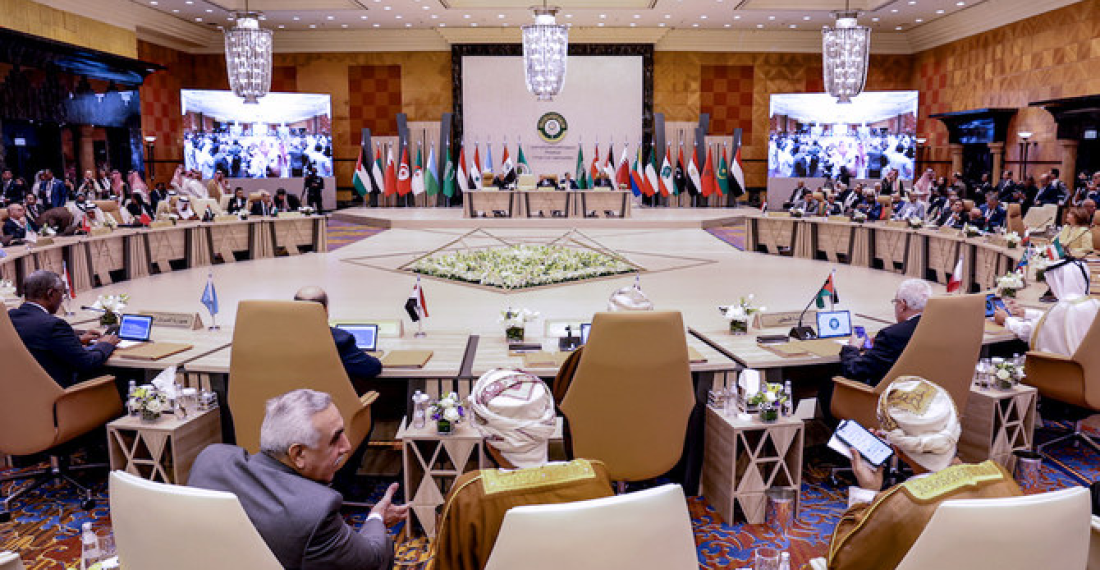Syrian President Bashar al-Assad is attending his first Arab League summit in Jeddah, Saudi Arabia, on Friday (19 May) since his country was suspended from the group over the government's violent crackdown of pro-democracy protests in 2011 that led to the outbreak of the Syrian Civil War.
In the latest of a number of regional rapprochements, Syria was formally readmitted to the Arab League on 7 May after member states' foreign ministers voted to "resume the participation of the delegations of the government of the Syrian Arab Republic in the meetings of the Council of the League of Arab States", according to a statement. You can read more about this here.
Having been invited by Saudi Arabia as a guest of honour, Ukrainian President Volodymyr Zelensky will also be attending the summit in Jeddah on Friday.
"Home grown solutions"
The 32nd Arab League summit in the Saudi port city of Jeddah comes amid a renewed sense of purpose and unity across the Arab world. In an interview with Asharq Al-Awsat newspaper, the President of Djibouti Ismail Omar Guelleh said that he hoped the summit in Saudi Arabia "will lead to recommendations and decisions that contribute to resolving critical situations and difficult conditions faced by the Arab world, while preserving unity and solidarity among Arab brothers."
Meanwhile, Arab News reports that Saudi Arabia in particular is seeking "home-grown solutions" to regional problems, which has provided much of the impetus behind the recent diplomatic developments across the Arab world.
Speaking to Arab News, Jordanian lawmaker and political analyst Omar Ayasrah said, although previous Arab League summits had been marred by regional crises and disagreements, Friday's summit in Jeddah "seems to be different".
"It has been preceded by a number of Saudi-led initiatives and practical steps aimed first at laying down positive grounds for the meeting and consequently building a unified Arab position on regional crises and the necessary collective framework to address them," he said.
Fighting in Sudan and conflict in Yemen to feature highly
One of the biggest points of discussion will likely be the ongoing fighting between the Sudanese army and the rival paramilitary group, the Rapid Support Forces (RSF), which has rocked Sudan since 15 April. Hundreds are confirmed dead, while hundreds of thousands have been displaced amid what is becoming an increasingly dire humanitarian situation. You can read an update from 17 May on commonspace.eu here.
It is expected that member states will use the opportunity to urge the parties to engage in dialogue and resume talks brokered by Saudi Arabia. Previous ceasefires between the Sudanese army and the RSF have all failed.
On a more positive note, the ongoing peace process to resolve the conflict in Yemen is also expected to feature highly at the Arab League summit. In the run-up to the summit, Yemeni officials have said that Arab League members can assist in achieving peace by supporting current peace efforts, including a Saudi-led initiative that addresses points of contention between the Yemeni government and the Houthis.







